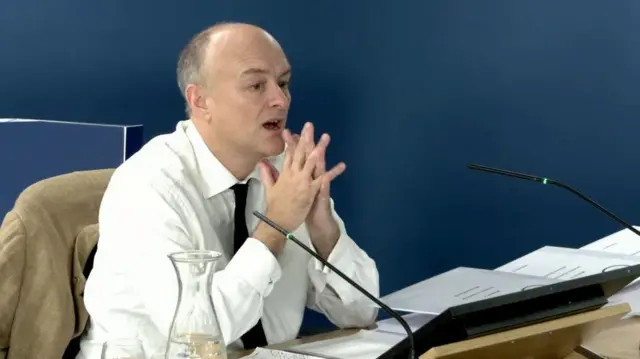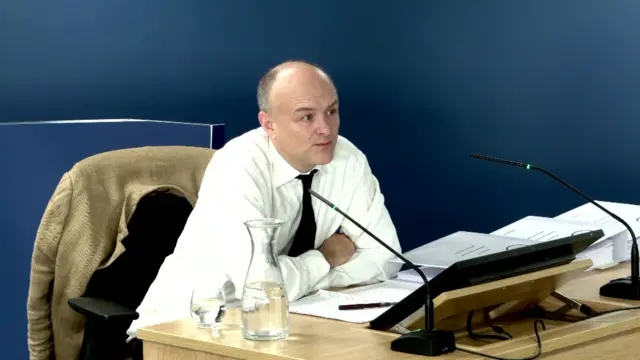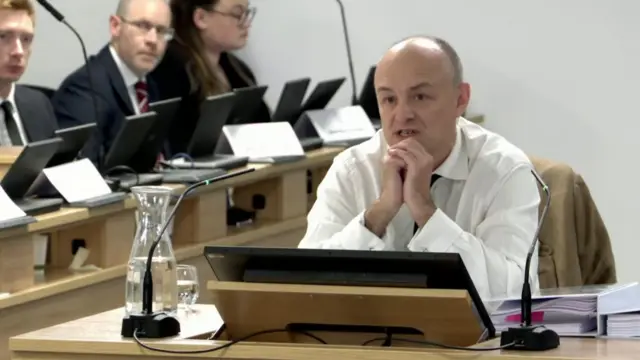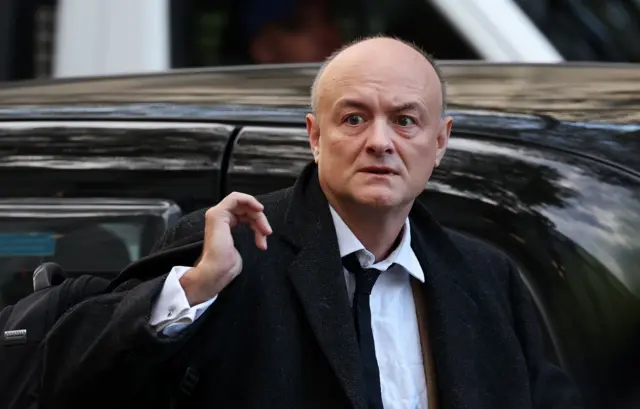There was no plan to protect vulnerable from Covid - Cummingspublished at 14:39 GMT 31 October 2023Breaking
Hugo Keith KC, the inquiry's lawyer, moves on to the considerations around at-risk and vulnerable groups when the decision was being taken on whether to implement a lockdown.
By "vulnerable", he clarifies: people who were vulnerable in terms of socio-economic deprivation, victims of domestic abuse, people vulnerable to the impact of a lockdown, and members of minority ethnic groups.
Keith asks to what degree these people were being considered by Downing Street.
Cummings argues this was "entirely appallingly neglected by the entire planning system" and that there were no plans, or effort to make plans, for these people.
They realised mid-March that there was "essentially no shielding plan at all" and that, he says, the Cabinet Office was trying to "block" the creation of a shielding plan.



